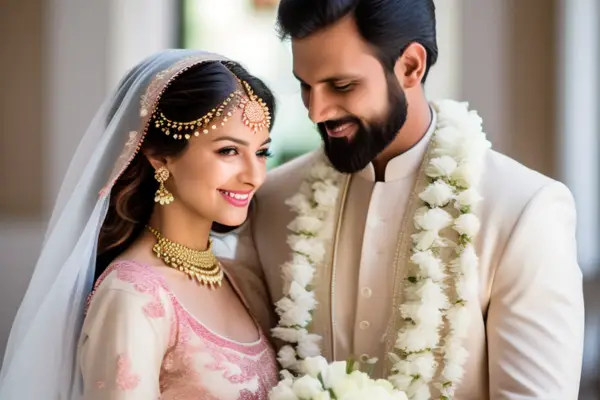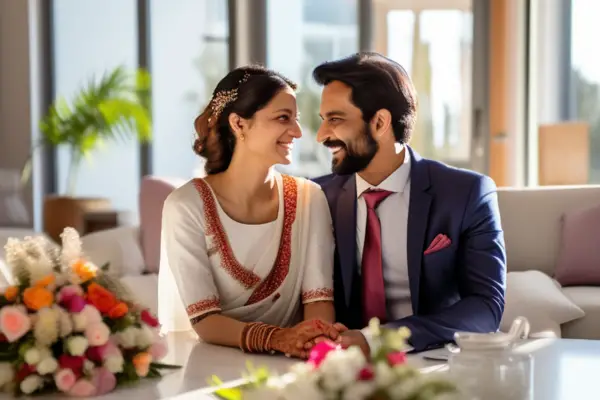Tips for Successful Arranged Marriages
Arranged marriages are still commonly practiced in many cultures and communities across the world, from South Asia to the Middle East to even some immigrant communities in the West. While the concept of marrying someone you barely know—much less love, at first—might seem daunting to many modern couples who are used to so-called “love marriages,” arranged marriages can indeed blossom into beautiful, lifelong partnerships given effort and understanding from both spouses.
In this blog post article, we will provide you tips for couples entering or navigating arranged marriages, from building thoughtful communication and intimacy to setting realistic expectations and more. While embracing the challenges, these practical pieces of advice can help nurture a caring, respectful, and hopefully romantic connection in a marriage arranged for you rather than by you.
Understanding the Context of Arranged Marriages
Before delving into the tips, it’s important to understand the cultural and social context in which arranged marriages still occur today. In communities where arranged marriages are commonplace, they are seen as more than simply a marital union between two individuals but rather a meaningful joining of two families. Several factors drive this longstanding tradition:
- Upholding faith and cultural traditions: Religious and cultural tradition is often a core incentive, including in Hindu, Islamic and Orthodox Jewish communities. Arranged marriages are seen as embodying both duty and dharma.
- Involving parents and elders: Out of reverence for their wisdom and life experience, families often collaborate very closely in spousal selection for their children, basing matches heavily on shared values, compatible backgrounds, common interests, and earning prospects more than romance alone.
- Prioritizing communal ties: These close-knit social groups emphasize marriage as a way of strengthening existing social bonds and connections rather than simply a private romantic choice. There is comfort found in the familiar.
There are varying types of arranged marriages—from those where the spouses don’t meet each other until the wedding day to milder “assisted introductions” by family members to help facilitate a natural courtship between mutually interested partners before any lifelong commitments are made. Some even see their setup as a helpful, built-in matchmaking service.
The level of say and personal choice granted in these partnerships also exists on a spectrum depending on cultural background, religiosity, education levels, and even generation—modern couples may enjoy more autonomy and less strict family involvement than in the past. However, family support remains a key pillar.

Tips to Foster Success in Arranged Marriages
Arranged marriages demand a unique set of tools and mindsets compared to romantic marriages in the West. Emotional and physical intimacy may not happen right away (or possibly ever to Western levels)—rather, it grows gradually out of other qualities rooted in mutual understanding, respect and purposeful effort. It hinges greatly on open communication, cultural sensitivity, and consciously nurturing the spark over time into a flame.
1. Establish Strong Communication from Day One
Clear, consistent communication serves as the lifeblood of any healthy marriage but proves especially critical for arranged partnerships starting out between two essential strangers. Set the tone early by making communication a safe priority.
- Carve out daily quality time together not just discussing practical matters but having substantial conversations: share your values, goals, views on life, childhood stories, future dreams and more to foster meaningful emotional and intellectual connections.
- Actively listen without judgment when your spouse opens up, making them feel truly heard and understood rather than offering immediate advice. Reflect back what you heard them say to show you care.
- Don’t let tension build! Calmly bring up issues early before they escalate into fights. Learn and respect conflict resolution norms in your spouse’s culture.

2. Adjust Your Expectations of Romance
In the West we are bombarded with overly idealistic soulmate narratives saying real love must be passionate, electric and happen nearly instantly—a notion wholly unrealistic for arranged partnerships. Remind yourself your marital success does not live or die based on those modern romantic comedy tropes.
While much slower to arrive, deeper, enduring ties can absolutely form over time once you let go of unrealistic expectations. Building interdependence and intimacy that stands the test of time hinges on actively nurturing fondness and respect.
Shared values, mutual understanding and authentic compatibility sow stronger seeds for long-term marital success than mere infatuation alone ever could.
3. Embrace Patience as Affection Grows Over Time
It’s important to note, however, that you cannot force closeness instantly just because arranged marriage customs decree it so. Let affection unfold organically through genuinely enjoying each other’s company versus formalized gestures.
Find and celebrate points of common interest to bond over like books, sports, philosophy, film and art rather than putting undue pressure on physical intimacy too soon if it makes either spouse uncomfortable.
Research shows arranged couples report finally “falling in love” anywhere from a few months to a few years into marriage, but only after first establishing firm friendship and understanding given they were relative strangers at first. Have faith that, weathering the natural ups and downs of any marriage with compassion and conscious care for your spouse’s needs, genuine fondness lies on the horizon.

4. Bridge Cultural Gaps Mindfully
One spouse may hail from a vastly more traditional background than the other or you may have been raised an ocean apart in societies with very different norms surrounding matters like gender roles, family dynamics, communication styles and intimacy expectations. Do not let cultural gaps widen into gulfs of simmering resentment or misunderstanding. Make an active, ongoing effort to close them through education, empathy and compromise instead.
- Show genuine interest in learning about your spouse’s cultural values. Ask open-ended questions without judgment and identify points of common ground.
- When conflicts inevitably arise from opposing cultural perspectives, take a patient, nuanced approach to negotiating them. Explain your own views while trying hard to see their side of things too before suggesting any compromises that honors both backgrounds.
- If language barriers exist, make diligent efforts to pick up key phrases in your spouse’s tongue. Often small gestures in someone’s native language convey deep care and solidarity.
5. Plan Finances Transparently
Money-related stress can quickly sabotage marriages in ugly ways. Nip financial tensions in the bud through upfront planning and frequent check-ins. Discuss both your assets, debts, spending habits and career aspirations candidly.
Draft practical shared goals surrounding household budgeting, balancing short term needs like rent with long term savings priorities and emergency funds. Make major purchases only through mutual consent.
Financial transparency and equitable control prevents later shocking revelations down the line surrounding spending problems or hidden debt fueling a sense of betrayal.
Update one another on any job changes or inheritance windfalls altering your collective bottom line for better or worse. Make a point of periodically reviewing progress together toward your financial hopes for the future family.

6. Know When to Seek Outside Help
Should communication breakdowns, irreconcilable cultural rifts, intimacy troubles, domestic tensions or other unresolvable issues threaten to wholly overwhelm your arranged marriage no matter how hard you try to make it thrive, do not hesitate to seek outside support services.
Many organizations and therapists now specialize in addressing hurdles common to arranged couplings. Marriage counseling or matchmaker check-ins can prove invaluable saving resources.
Additional Tips for Success
Alongside the major pillars above, integrating these supplemental best practices can also help cultivate happiness:
- Maintain outside individual identities and friend circles beyond just the marriage, preventing unhealthy enmeshment. Pursue personal hobbies and girls/guys nights out apart.
- Spend quality time together away from home engaging in new shared interests like hiking, painting classes or volunteering for causes you both care about.
- Pull equal weight with household duties like cooking and chores. Don’t default to antiquated gender role expectations.
- Show genuine interest in each other’s professional aspirations. Support their career dreams through thick and thin.
- Exchange heartfelt compliments and displays of physical affection regularly, even via brief, subtle gestures like hand-holding if that is all one spouse is comfortable with long-term.
- When visiting extended family where cultural expectations may weigh heavily, present a united front together in graciously but firmly establishing reasonable boundaries.
In Conclusion
Arranged marriages demand exceptional effort compared with more organically sparked modern romances, yes, forcing you to thoughtfully nurture bonds from scratch rather than rely on initial infatuation.
But embracing that reality with compassion and well-matched expectations paired with unrelenting dedication to open communication and mutual understanding can absolutely transform these pragmatic partnerships into some of the most lasting, fulfilling bonds over a lifetime through conscious dedication to growth.


